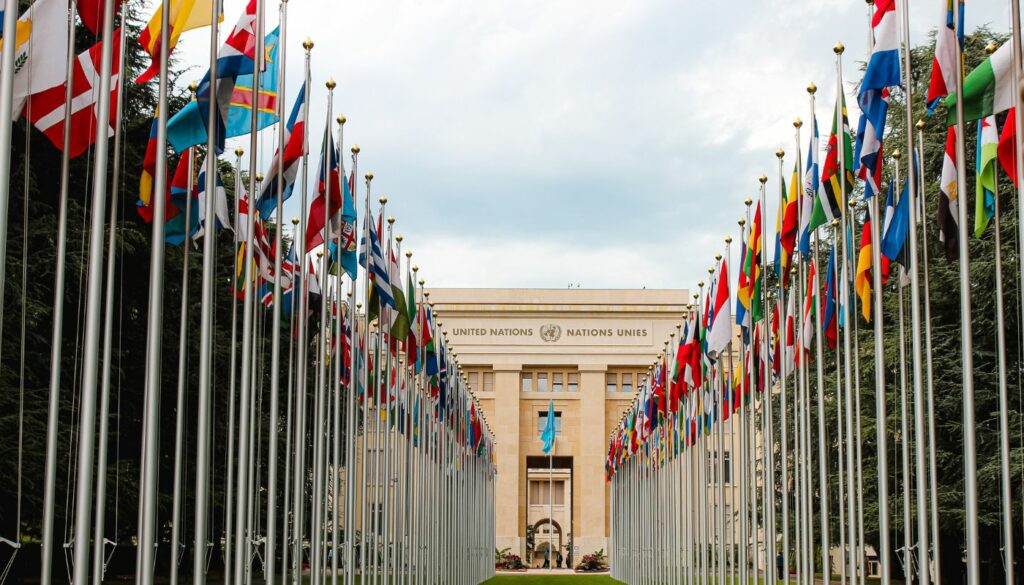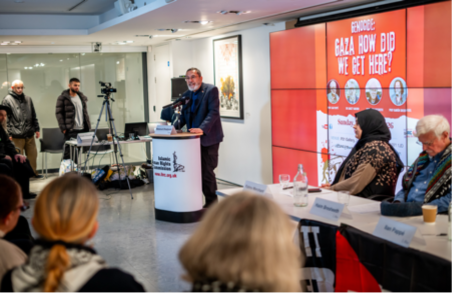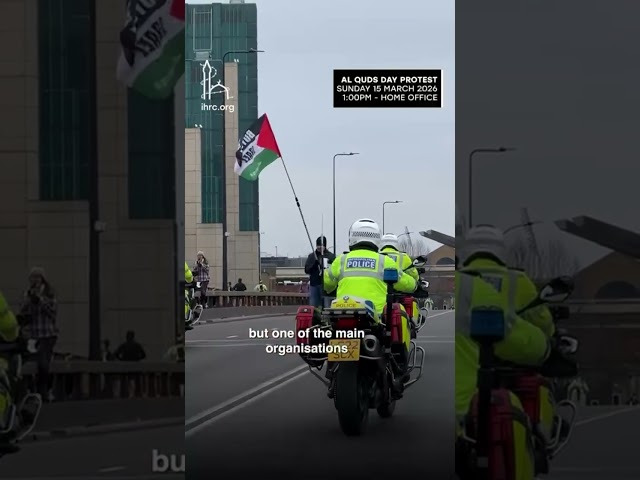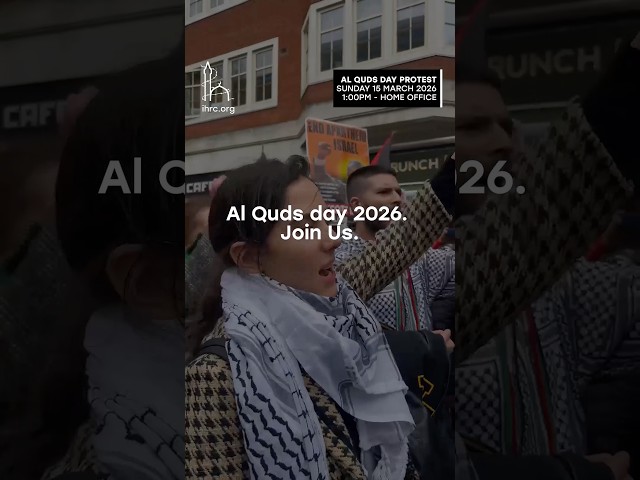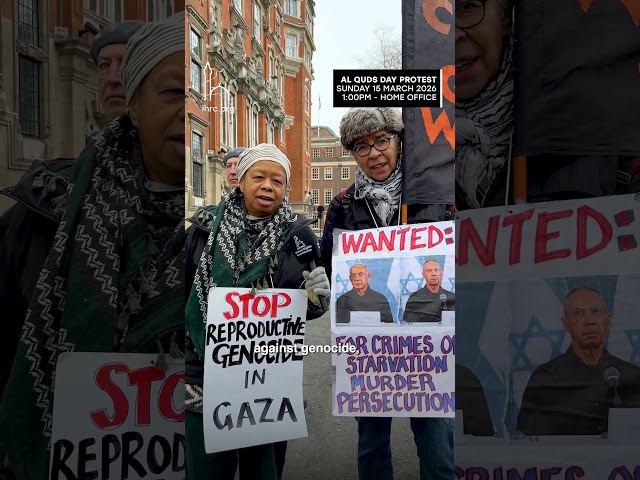1. Introduction / Purpose
On 22 September 2025, the Islamic Human Rights Commission (IHRC) hosted a side panel at the Palais des Nations in Geneva, during the 60th session of the UN Human Rights Council (HRC60). The event, held from 12:00 to 13:00, aimed to present IHRC’s two most recent research projects:
– The Authoritarian Drift of the European Democratic State: The Crackdown on the Pro-Palestine Movement
– An upcoming report on attacks against legal professionals in the UK.
2. Participants
The panel was attended by around 30–40 participants, including representatives from UN offices, civil society organizations, lawyers, and activists.
Key speakers included:
• Massoud Shadjareh, IHRC Chairman
• Caterina Aiena, IHRC Senior Policy Researcher
• Abed Choudhury, IHRC Head of Advocacy and Legal
• Fahad Ansari, UK Lawyer
• Natalie Strecker, activist, who contributed to the panel via a video message
3. Activities / Proceedings
The session featured the following contributions:
– Political attacks on the UK legal system – presented by Abed Choudhury, focusing on the erosion of access to justice and threats to the rule of law.
– Testimonies from victims – Fahad Ansari and Natalie Strecker shared personal accounts of repression faced by lawyers and activists, highlighting the human impact of systemic attacks.
– IHRC’s research findings – Caterina Aiena introduced the report on the crackdown on the pro-Palestine movement in Europe, discussed the forthcoming report on attacks against lawyers, and outlined IHRC’s next two-year research project on developments within the pro-Palestine movement.
In addition, IHRC held a separate meeting with the Offices of the following UN Special Rapporteurs (SRs):
– Irene Khan, Special Rapporteur on the Promotion and Protection of the Right to Freedom of Opinion and Expression
– Margaret Satterthwaite, Special Rapporteur on the Independence of Judges and Lawyers
Discussions focused on Fahad Ansari’s case and similar UK cases. IHRC formally submitted information under the Special Procedures complaints mechanism, which, while not judicial, serves to:
– Alert governments and relevant actors to human rights violations.
– Urge action to prevent, halt, investigate, or remedy such violations.
– Report communications and responses to the Human Rights Council, raising awareness of individual and systemic issues.
4. Outcomes / Results
The side panel and subsequent SR meetings produced positive several outcomes:
– Participants engaged with IHRC’s latest research and victim testimonies.
– The urgency of addressing repression of lawyers and activists in the UK and Europe was underlined.
– The Office of the Special Rapporteur on the independence of lawyers invited IHRC to coordinate a London-based meeting with other lawyers who have experienced repression.
– IHRC committed to acting as a bridge between victims, civil society groups, and the Special Rapporteurs, using the complaints procedure to facilitate reporting and advocacy.
5. Conclusion / Recommendations
The IHRC side panel and SR meetings successfully spotlighted the escalating repression of legal professionals and the pro-Palestine movement in Europe. These interconnected issues reflect a broader strategy to silence human rights defenders, undermine democratic institutions, and erode fundamental rights, threatening hard-won gains of recent decades.
The strong attendance, lively Q&A session, and interest expressed by civil society organisations in IHRC’s ongoing research highlight the significance of these discussions. Many participants requested to be kept informed about the forthcoming report on attacks against lawyers.
IHRC emphasised that domestic avenues for accountability in the UK have been exhausted and that regulatory bodies have failed to fulfil their role in safeguarding justice.
Recommendations:
– Maintain active engagement with the UN Special Rapporteurs.
– Continue documenting and publicising violations against lawyers, activists, and human rights defenders.
– Pursue follow-up actions to amplify awareness and secure remedies.
– Advocate for stronger international oversight where national mechanisms prove ineffective.
Watch here:

